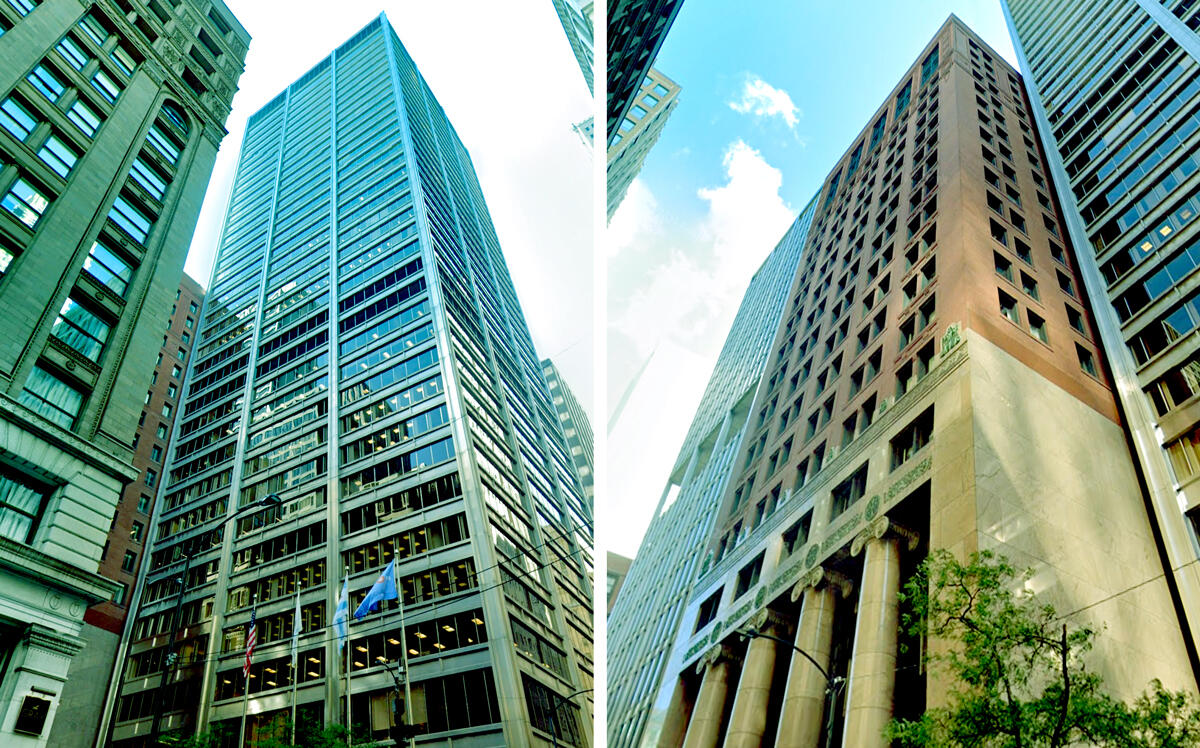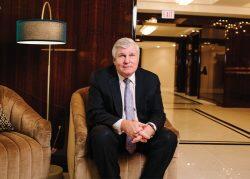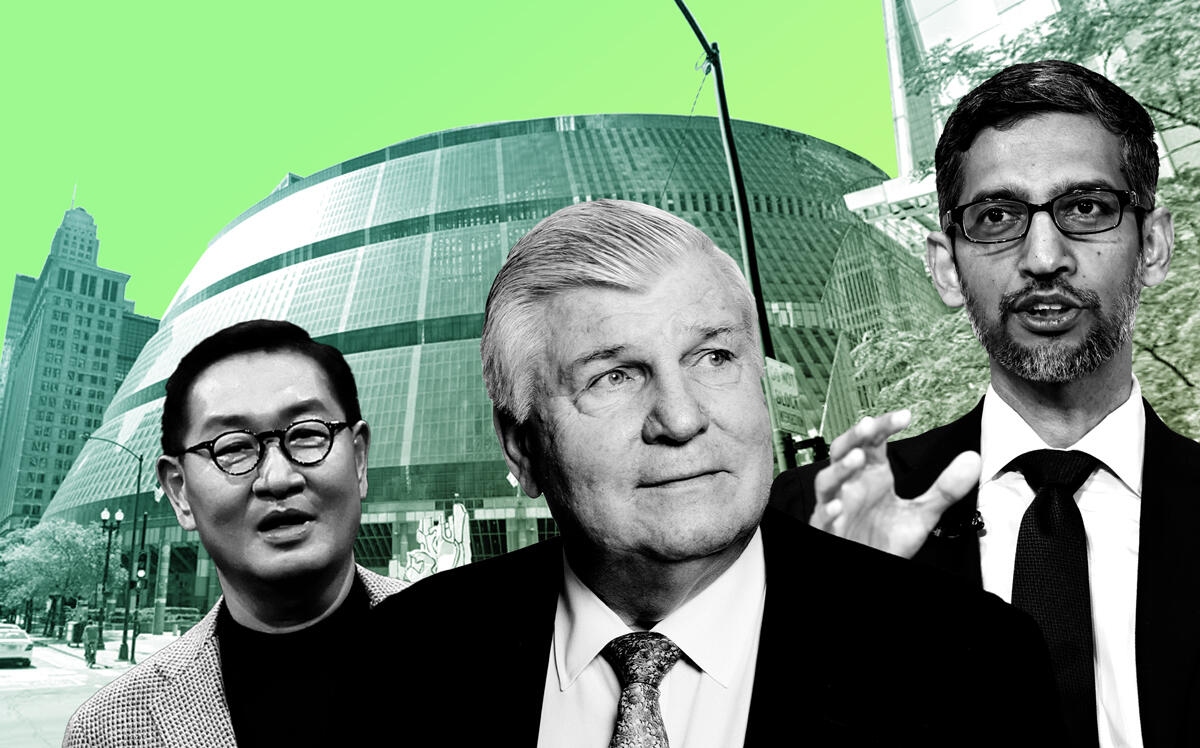Samsung Life Insurance and its lender lost about $200 million on the sale of a Loop building that was a key part of Google’s deal for the Thompson Center, an agreement that included a $156 million loan to developer Mike Reschke from the tech giant.
The South Korean company lost $124 million and Union Bank lost $70 million on the sale of the former BMO Harris Bank complex, public records show. Samsung had its entire equity erased in the buildings at 115 South LaSalle and 111 West Monroe Streets, which the firm bought for $315 million in 2015. Samsung didn’t return requests for comment.

115 South LaSalle Street and 111 West Monroe Street (Google Maps)
More details about the size of the losses and Google’s loan are emerging in the wake of the tech giant’s deal this month for the 1.2-million-square-foot Thompson Center a few blocks to the north on LaSalle and Randolph streets. Reschke was able to buy the BMO building’s notes for about $120 million after Samsung struggled to fill space left empty by the exits of BMO Harris and law firm Chapman & Cutler, which accounted for almost the whole property. The loss was a blow to Union Bank, which loaned $191 million against the property for the sale seven years ago.
“Who could have known that BMO would leave their original Harris Bank building they’d been in since 1910?” Reschke said. “That’s one of the risks of investing in a single-tenant building.”
The bidding for the note against the Loop towers, which have a combined 1.2 million square feet, was competitive and multiple prospective buyers showed interest, according to Reschke and a person familiar with the transaction. Yet it was only Reschke and his partner, Quintin Primo of Capri Global Investments, who could offer a plan that would give the LaSalle-facing tower in the complex a big new tenant right away: the state of Illinois.
When the state, which has owned the Thompson Center and held offices there since it was built in 1987, said in December that it would sell its building to Reschke and Primo, the plan was for state offices to move back into building at LaSalle and Randolph streets after the developers overhauled it for $280 million.
Then Google came knocking. It wanted the whole building, not just a slice of it. That required the state to find a new spot, and Reschke had the answer after it won the bidding for BMO. The state agreed and is buying it from Reschke for $75 million, leaving the Thompson Center for good. Reschke will keep the older Monroe portion of the BMO complex, which includes about 600,000 square feet and was valued at $43 million as part of his purchase of the Union Bank loan.
Google has since solidified its commitment to expand into Thompson Center with its loan to a venture controlled by Reschke and Primo, who are set to lead its repositioning with a design sought by the tech firm. The loan exceeds Reschke and Primo’s purchase price of $105 million by $51 million, with the difference serving as a deposit to start the project.
“It’s a typical build-to-suit agreement,” Reschke said, declining to comment further on the financing.
It’s unusual for a Chicago Loop office development, since a building’s future tenant is loaning money to the developer with plans to buy it rather than lease it after construction.
Developers typically obtain loans after inking a lease with an anchor tenant with good credit — a standard threatened as downtown office tenants downsize to a degree that leaves fewer firms needing enough space to anchor a 50-story skyscraper.
Google plans to use the whole building, though, so Reschke and Primo don’t need to hold on as owners because they won’t need to make smaller leases to fill out the rest. How much Google plans to spend hasn’t been disclosed, and the final price depends on how much Google spends on the overhaul, which will address deferred maintenance and improve ventilation systems in the almost 40-year-old building.
Primo has kept a low profile since Google’s announcement, making just one written statement that he was “thrilled” to be working again with Reschke. Primo and his firm haven’t responded to requests for comment.
“We’re just friends and partners, and we’ve been partners on different real estate ventures over the years,” Reschke said of his relationship with Primo, without elaborating on which properties they’ve previously partnered.
Google declined to comment on the loan transaction. It plans to move into the building in 2026.
The deal has buoyed the spirits of downtown Chicago real estate players, who had become accustomed to news detailing the retreat of the office market during the pandemic, with tenants offering a record amount of sublease space this year and vacancy rates at all-time highs, with more than 21 percent of downtown space vacant as of June, according to CBRE.
“It’s a transformative transaction for Chicago,” Reschke said.
Read more


